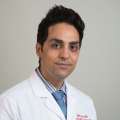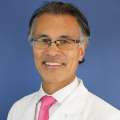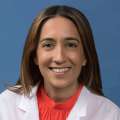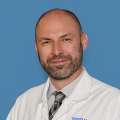Advanced Heart Failure
We offer effective, research-driven treatment options for advanced heart failure. Our integrated care model means your referring physician can quickly and efficiently coordinate care with one of our specialists.
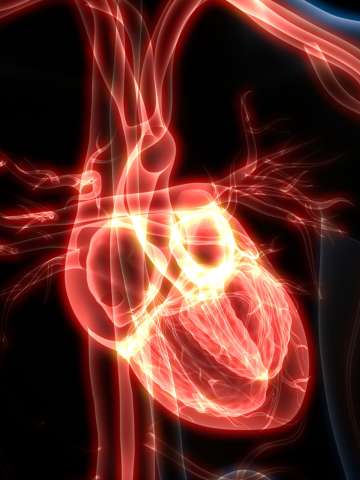
UCLA Health approach to advanced heart failure care
Our advanced heart failure program is an integrated service that provides specialist phone consultations 24 hours a day, 365 days a year. If you have advanced heart failure, our specialists offer expert support and consultation to guide your care plan. They work directly with the Ahmanson/UCLA Cardiomyopathy Center, Mechanical Circulatory Support Center and Heart Transplant Center.
Highlights of our program include:
Prompt assessment and treatment: If you have advanced heart failure, your referring physician can speak with our attending cardiologist within five minutes. This prompt communication facilitates timely and appropriate evaluation and care.
Research-driven care: UCLA Health physicians have led the way in developing new medical therapies, devices and disease management strategies for heart failure. These advancements have significantly improved quality of life, reduced hospitalization risk and increased chances of survival.
Direct access to specialists: Our advanced heart failure service offers physicians direct access to experts who specialize in advanced heart failure, leading to improved outcomes. We also accept referrals for patients who have had heart transplants or have a ventricular assist device (VAD) to support the heart’s pumping functions.
National recognition: Our medical centers have earned the American Heart Association’s Get With the Guidelines - Heart Failure Gold Plus Quality Achievement Award. This recognition highlights our commitment to comprehensive, high-quality heart failure care. We also rank consistently among the top hospitals in the nation according to U.S. News & World Report.
What is advanced heart failure?
Advanced heart failure is a term for the most severe stage of heart failure. Heart failure occurs when your heart muscle can’t pump blood throughout the body as it should. Experts estimate that about one in 10 people with heart failure have advanced heart failure.
In advanced heart failure, you experience symptoms even while at rest, including:
- Fatigue
- Heart palpitations, or feelings of your heart racing
- Loss of appetite and nausea
- Persistent coughing
- Shortness of breath
- Swelling and fluid buildup in your lower legs
Advanced heart failure treatments we offer
Advanced heart failure requires more aggressive treatment than heart failure in earlier stages. Treatments like lifestyle changes and medications don’t work to manage the symptoms of advanced heart failure. It is important to communicate openly with your provider about the risks and benefits of all treatment options.
Advanced heart failure treatment may include:
Cardiac resynchronization therapy: A surgeon places a pacemaker underneath the skin with wires that connect to both lower heart chambers (ventricles). The pacemaker sends electrical signals to the heart’s ventricles to keep them beating in proper rhythm. This electrical stimulation is called biventricular pacing. Cardiac resynchronization therapy can help keep the heart beating as strongly as possible to improve blood flow throughout the body.
Implantable cardioverter defibrillator (ICD): An ICD is a small device placed beneath the skin. Like a pacemaker, it also has small wires that connect to the heart. If the ICD detects an irregular heart rhythm, it sends a small electrical shock to restore the heart’s normal rhythm. This helps the heart keep pumping blood throughout the body. Some people have an ICD in addition to a pacemaker.
Ventricular assist device (VAD): A VAD is a device that helps the heart ventricles continue pumping blood. It often is used as a treatment to keep the heart working while patients wait for a heart transplant. A VAD requires open-heart surgery to place the device in the heart’s ventricles. The surgeon may place the VAD in either heart ventricle, but it often is placed on the left side, known as a left ventricular assist device (LVAD).
Heart transplant: When the heart can no longer function properly on its own, patients may need a heart transplant. During a transplant, a heart surgeon replaces the patient’s heart with a healthier one from an organ donor.
Meet our team
Our specialists offer expert care for patients with advanced heart failure. We use state-of-the-art treatment options and may offer new treatments available through clinical trials. Our expert physicians are available 365 days a year to provide consultations for patients with advanced heart failure.
Director
Physicians
Advanced Practice Nurses
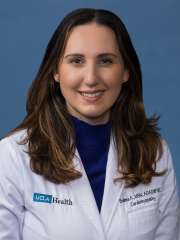
Sabina Aleksandrovskaya, MSN, NP-C
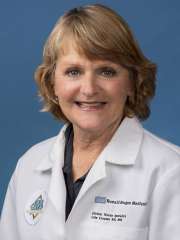
Julie Creaser, RN, MN, CNS, CHFN
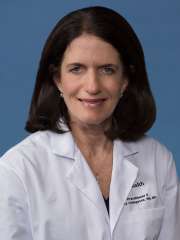
Nancy Livingston, MSN, NP-C

Alexandra Monin, MSN, NP-C
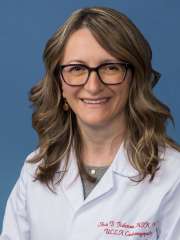
Anca Rahman, MSN, NP-C
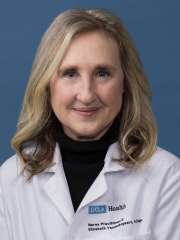
Elizabeth Vandenbogaart, DNP, AGACNP-BC, CNS
Contact us
Call 310-825-8816 to request an appointment with an advanced heart failure specialist at UCLA Health.
Find your care
Advanced heart failure specialists are always available to provide expert care. Call 310-825-8816 to learn more about our services.
UCLA Heart Failure Symposium 2024
Sat, Sep 21, 2024, 7:00 AM - 4:00 PM
Marina del Rey Marriott, Marina del Rey, CA

